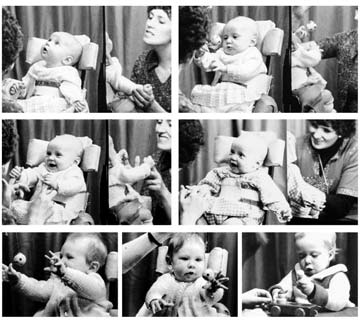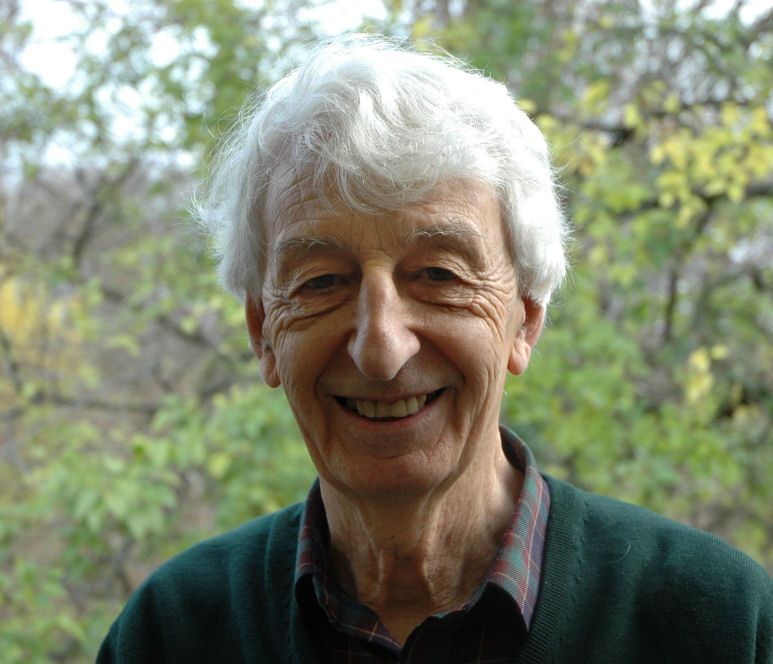The humanness of conviviality in learning
Learning to Live Well Together ~
investigating the shaping of education from ethics of relationship & listening.
Seminar Two: The humanness of conviviality in learning
Professor Colwyn Trevarthen, Edinburgh
 Abstract reasoning about the brain as an organ for 'cognition', just recording information, creates barriers to understanding of the playful and affectionate motives for learning in early childhood.
Abstract reasoning about the brain as an organ for 'cognition', just recording information, creates barriers to understanding of the playful and affectionate motives for learning in early childhood.
As teachers and parents we need to appreciate how, in every human community, impulses for play inspire rituals of artful creativity and their celebration, and to consider how the source of this imaginative vitality born in our children may be best supported. ... Does the ambitious world of adults searching for profits in knowledge and skills become toxic for the spirit of many children?
In the past 50 years, research to describe how infants live with those who care for them, has discovered remarkable powers of selective awareness in newborn babies, and a need to engage with other persons' impulses and imitate them. Within a year, before any words are picked up, this inquisitive and affectionate playmate is learning of conventional behaviours, including daily rituals and purposeful handling of everyday tools. The child has taught us that we are born with powerful motives that lead to sharing baby songs, action games and use of words with many other tricks and devices for spreading and keeping alive a particular history of meanings. This is the 'nature of culture', in the child, that education has to serve
We are led by … observant science of human nature to recognize that the foundations of education, in every culture, must be in the development from birth of human impulses to test and expand active experience, and to share it joyfully with companions.
The brain of a newborn is about one third the size of an adult brain, but it has the unique human anatomy, including cerebral hemispheres with different temperaments and awareness adapted for complementary roles in cultural learning. The two sides of the brain of a child show different periods of growth that relate to changes in social motives for building affectionate relationships celebrated in artful ways of self-expression for collective pleasure, and systematic concentration of the individual body and mind to discriminate and identify or represent tasks that exploit environmental affordances for profitable 'work', and for their manipulation in technology.
The changing balance of these complementary modes, of the intellectual intention and awareness of the individual, contrasted with value-sensing of aesthetic and moral feelings in relationships, marks the key stages of a young child's activities and learning. Educational practice must attend to and work with these transformations in human ingenuity and compassions, how they may be created in development of body and mind, and how they are supported in communication and cooperation.
 During the past four decades, Professor Colwyn Trevarthen has published widely on brain development, the development of communication in infants and toddlers, musical and gestural communication, parent-infant interaction, and the interpersonal foundations of language and meaning. He is now Professor (Emeritus) of Child Psychology and Psychobiology in the Department of Psychology at the University of Edinburgh, where he has taught since 1971. His professional generosity, enthusiasm and scholarship have been recognised internationally. He was trained as a biologist and psychologist, and pioneered research on infant communication in the 1960s with Jerome Bruner, T. Berry Brazelton and Martin Richards.
During the past four decades, Professor Colwyn Trevarthen has published widely on brain development, the development of communication in infants and toddlers, musical and gestural communication, parent-infant interaction, and the interpersonal foundations of language and meaning. He is now Professor (Emeritus) of Child Psychology and Psychobiology in the Department of Psychology at the University of Edinburgh, where he has taught since 1971. His professional generosity, enthusiasm and scholarship have been recognised internationally. He was trained as a biologist and psychologist, and pioneered research on infant communication in the 1960s with Jerome Bruner, T. Berry Brazelton and Martin Richards.
Dates, Details & Booking
| Date | Tuesday 13th July 2021 |
| Price | £40 |
| Member Discount | 10% |
| Presenters |
Professor Colwyn Trevarthen, Edinburgh |
| Please Note: |
|
| Times | 4 - 5.30pm |
| Location/Map | online |

